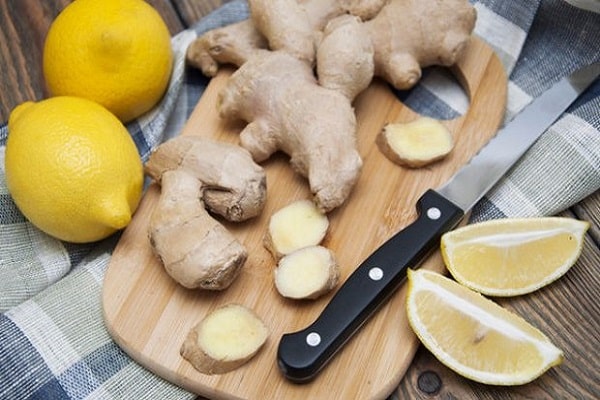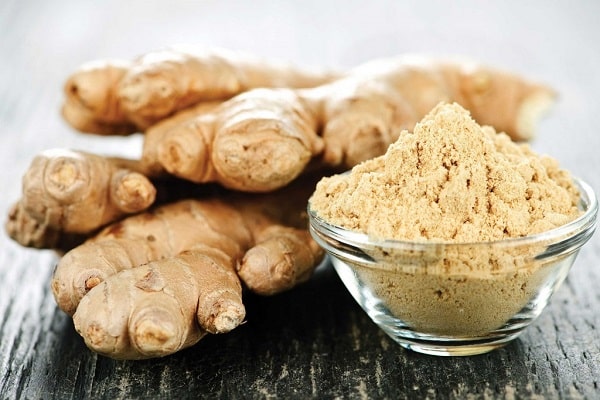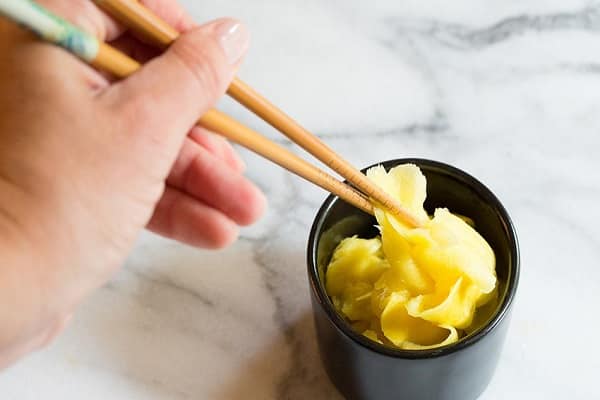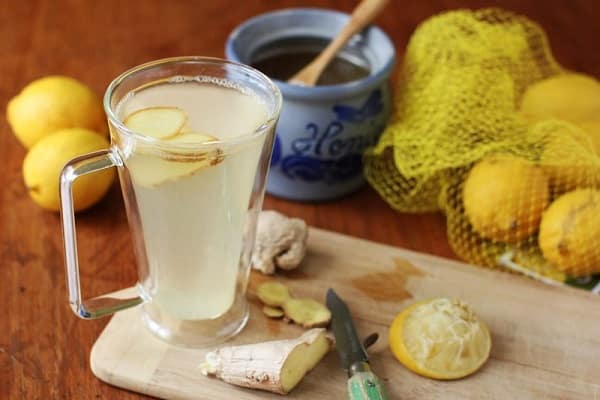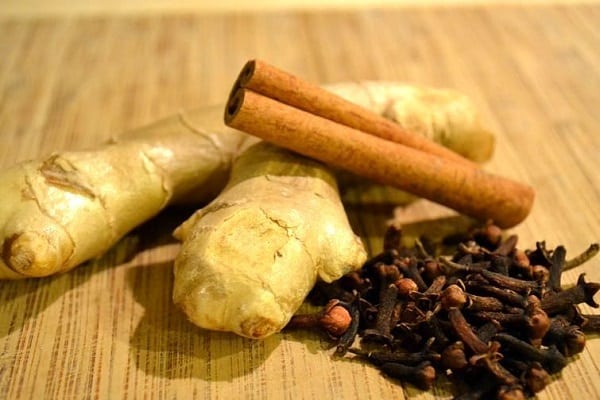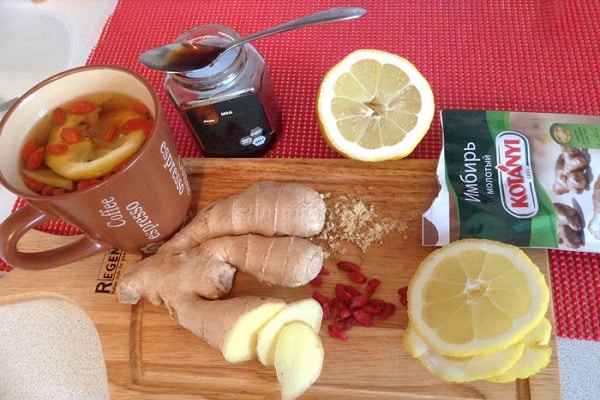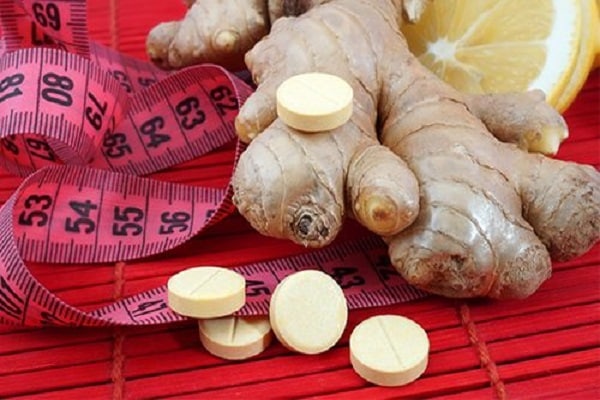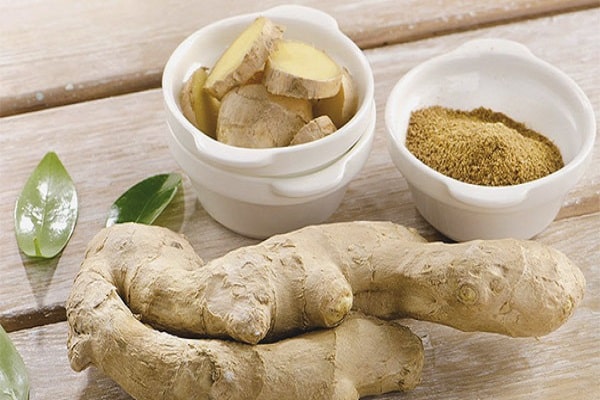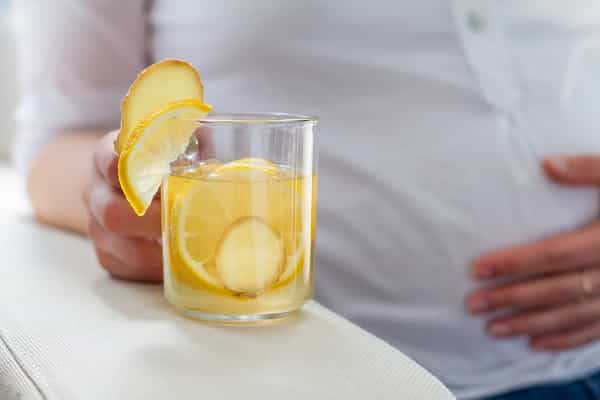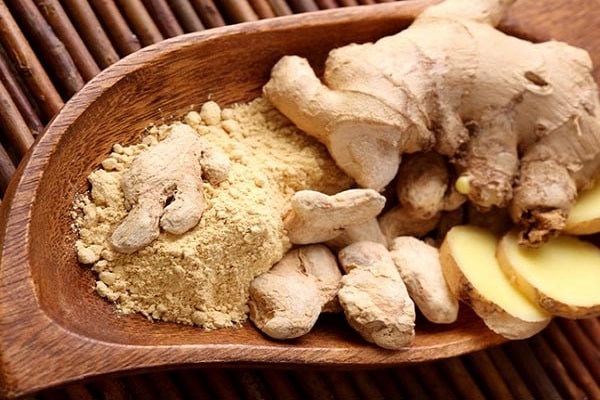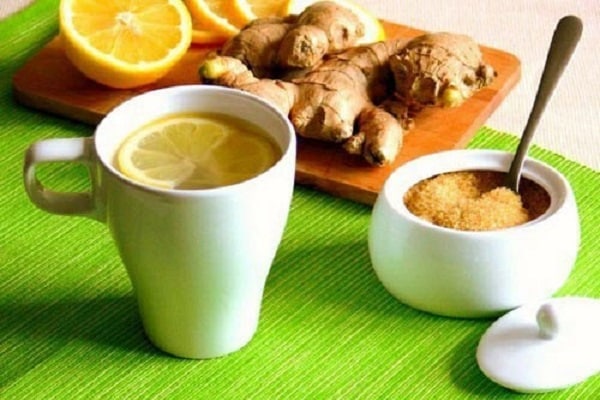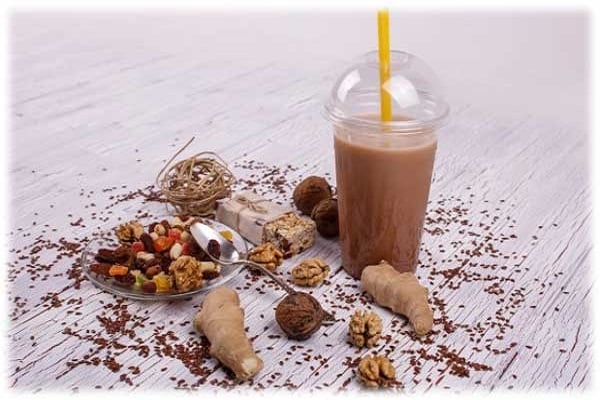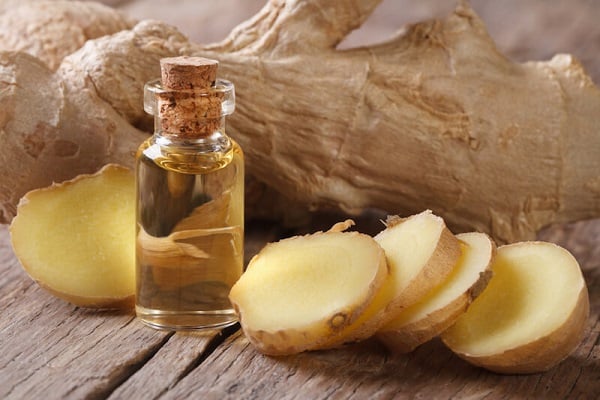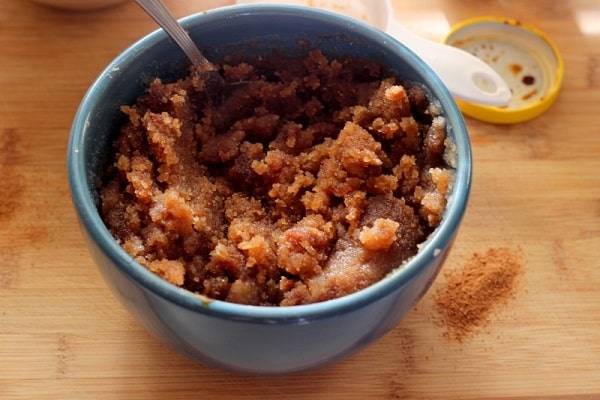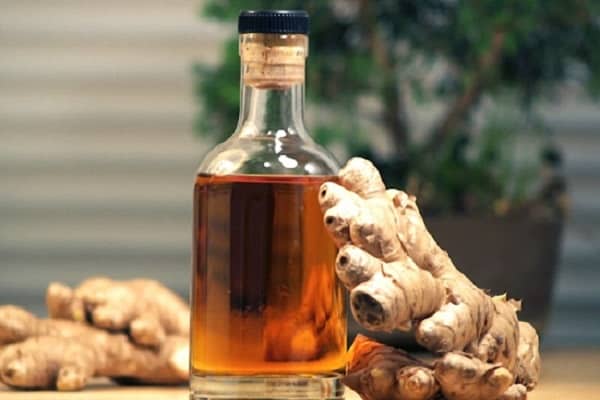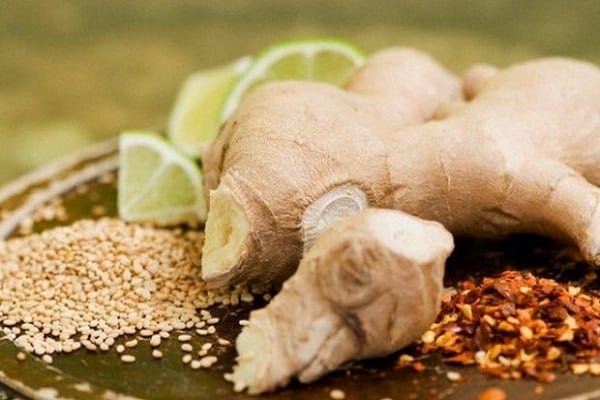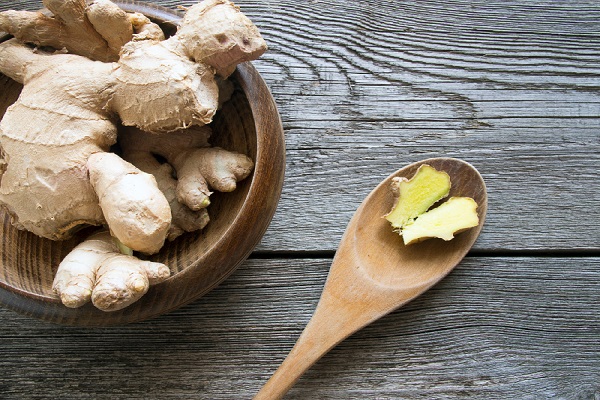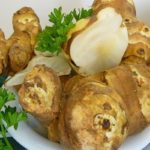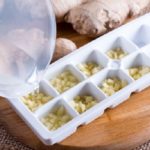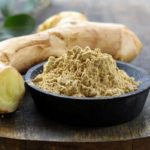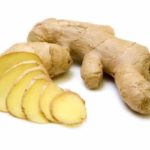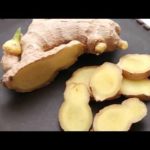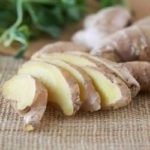The benefits of ginger for women are undeniable. The root of this plant was used in ancient times to treat and maintain the beauty of the female body. Modern recipes have further expanded the scope of its use - from a flavoring additive in culinary recipes to an assistant in the sexual sphere.
- Useful properties of ginger for women
- How to use ginger correctly?
- Ginger root for weight loss
- Properties of ginger during pregnancy
- Ginger for infertility
- Use of ginger in the treatment of diseases
- Using ginger for hair
- Benefits of ginger for skin: how to use
- The effect of ginger on a woman’s body: contraindications
However, before introducing any natural drug into the diet, you must make sure that there are no contraindications and that the woman can use it without harm to her health.
Useful properties of ginger for women
Useful properties of ginger for women:
- It has an anti-inflammatory effect, helps the body resist various colds and viral diseases, especially during the cold season.
- It is used as an expectorant for various types of coughs, helps with sore throats and can be an alternative to medications.
- Tones the body, gives strength and vigor, promotes vigorous activity, including intellectual activity.
- The antioxidants contained in the plant improve mood, fight attacks of depression, irritability, and reduce stress levels.
- Antiparasitic properties prevent infections.
- Contains magnesium and potassium, beneficial for the cardiovascular and nervous systems.
- Works as an immunomodulator, recommended for weakened people or patients prone to chronic diseases.
- It is considered a rejuvenating plant due to many components in its composition.
- In some cultures it is used as an aphrodisiac and used in the treatment of infertility.
To properly use the root vegetable, women should strictly adhere to rules that can fully reveal its benefits and reduce potential harm.
How to use ginger correctly?
The effect of ginger on a woman’s body is positive, regardless of the type of use.
A variety of options allows everyone to find the optimal method of application for their taste, duration of action and effectiveness:
- dry powder - the basis for ginger dough and other confectionery products, a component of curry, seasonings in oriental cuisines, in cosmetology - an element of masks and wraps, in medicine it is used for compresses;
- cut into pieces, strips or grated fresh root - the main ingredient of ginger tea, decoctions and tinctures, including alcoholic ones;
- pickled ginger - a flavoring additive for meat, fish, a separate appetizer;
- liquid extract is a medicine, a component of cosmetic ointments and creams.
The simplest tea made from ginger root brings great benefits to the women's body if it is properly prepared to preserve all the medicinal qualities and vitamins included in the composition:
- Rinse thoroughly and peel the rhizome in as thin a layer as possible.
- Grind on a grater, in a food processor, or finely chop the raw root.
- First method: 1 tbsp. l. pour the resulting raw material into a thermos with 1 glass of high-quality water, previously brought to a boil. Leave for 30 minutes.
- Second method: 1 tsp. Boil the raw materials over low heat with 1 glass of water for 15 minutes.
- To more fully reveal the beneficial properties and give better taste, honey, lemon or other citrus juice, mint or lemon balm, and sometimes spices: cinnamon, cardamom, cloves are added to the drink.
It is recommended to drink this tea warm so that the ginger fully reveals its warming abilities and is better absorbed.
Ginger root for weight loss
Introducing daily consumption of ginger tea 30 minutes before meals several times a day is one of the weight loss methods that is widely recommended by nutritionists.
The tea is prepared according to the classic recipe; sometimes it is recommended to add a few cloves of garlic and do without sweeteners.
Ginger has a splitting effect on fatty tissue, acts as a sorbent on the woman’s body, and accelerates metabolism.
As part of the diet, many permitted dishes can be varied by adding dry or fresh ginger root when preparing them. Then the products will be better absorbed, and their remains will be eliminated from the body faster by stimulating digestion.
Properties of ginger during pregnancy
During pregnancy, the plant helps relieve painful conditions (nausea, heartburn, swelling), is used as a natural antidepressant and has a preventive effect against infection with viral and bacterial diseases.
Even in small quantities, ginger tea is medicinal, medicinal properties of ginger are irreplaceable if a woman has no contraindications to its use.
A very healthy product should be excluded from the diet of the expectant mother:
- during pregnancy with complications, threat of miscarriage;
- with increased uterine tone;
- in the 3rd trimester, so as not to provoke premature birth.
In other cases, ginger root is used as follows:
- To combat toxicosis in the morning, without getting out of bed, you should chew a piece of fresh root or drink warm ginger tea.
- For vitamin deficiency and mineral imbalance, use ginger tea or decoction rich in vitamins.
- In the cold season, after contact with a potential source of viruses, immediately drink ginger tea with garlic, and it is advisable to lie down under a blanket after that.
- For mood disorders and irritability, drink warm ginger tea with honey and lemon.
- Having a threat of gestosis and a tendency to edema, you can use the weak diuretic effect of ginger, replacing part of the liquid you drink with drinks based on it.
Ginger for infertility
Ginger root exhibits its medicinal properties for women and problems with conception.
Although doctors in ancient times always included it in medicinal preparations for infertility, traditional medicine does not so categorically evaluate the beneficial properties of ginger in this regard, however, it recommends ginger drinks when planning pregnancy.
They are able to normalize hormonal levels, tone the uterus, provide a rush of blood to the pelvic organs, stabilize ovulation, restore the menstrual cycle, and eliminate its painful manifestations.
For depression, ginger also helps cope with anxiety, which will be an additional positive factor for pregnancy.
Using the dry medicinal root as an aphrodisiac enhances sexual desire.
Use of ginger in the treatment of diseases
In medicine, ginger is used for various types of diseases as an element that complements the main therapy:
- To improve immunity and fight pathogenic microflora: ginger tea is included in the menu on an ongoing basis and is used for poisoning to help the digestive tract.
- For stomach and intestinal disorders, an infusion is used to prevent dehydration, which additionally helps remove toxins.
- To relieve headache, menstrual or muscle pain, compresses of dry powder diluted with water or warm oil are applied to the location of the pain.
- To relieve nervous tension, relaxing ginger decoction baths are taken for up to 30 minutes.
- To normalize the syndrome of menopause, menopause, and menopause, the benefits of ginger in women are manifested when taking tea or adding it to the diet as a seasoning for dishes.
- For seasickness and motion sickness, it is recommended to eat 0.5 tsp approximately 30 minutes before the trip. dry ginger, wash down with mineral water.
Using ginger for hair
What else can ginger root do for women? It is one of the active components of effective hair masks.
Such ginger-based products stimulate their growth, thickness, restore softness and silkiness, strengthen the roots, nourish and vitaminize the bulbs, and add additional shine. Some formulations can fight dandruff or reduce oiliness and greasy buildup.
The recipes are available and can be easily reproduced at home:
- Quick: Squeeze the juice from freshly chopped root and apply directly to hair.
- Classic: 4 tbsp. l. Mix freshly squeezed juice from the root with 2 tsp. dry powder.
- Health-improving: mix 3 quail eggs, 2 tbsp. l. plant juice, coffee grounds and honey.
- Strengthening: take 1 tsp for 1 egg yolk. lemon juice and honey, 5 tbsp. l. kefir and 1 tbsp. l. ginger powder.
All therapeutic masks are applied with massage movements to dry hair, left for up to 40 minutes, and washed off with warm water and shampoo.
Benefits of ginger for skin: how to use
Reviews of ginger from many women indicate its use to maintain beauty and youth; how is this root useful in cosmetology?
For oily and rash-prone skin, the product helps tighten pores, eliminate shine, normalize skin secretions, and relieve inflammation and rashes.
In recipes for face masks made from ginger rhizomes, additional components vary depending on the needs of the skin; these can be various oils, honey and milk-based products:
- A simple mask for skin tone: add a little olive oil to the root, crushed to a powdery state.
- Vitamin mask for aging skin: grate the root, add a little pomegranate juice.
- Soothing composition: grate 1 root, add 1 tsp. lemon juice and 2 tsp. honey, mix and cool in the refrigerator.
- To even out the tone of the face: you need to take 1 tsp. chopped ginger, honey and low-fat kefir.
All masks using ginger should be applied to well-cleansed facial skin for 5-10 minutes. After using them, the skin should be lubricated with a nourishing cream.
The effect of ginger on a woman’s body: contraindications
In some cases, the potential harm of ginger outweighs its benefits to a woman's body.
Therefore, before you start actively using this plant, you should familiarize yourself with the clear contraindications to its use:
- Diseases of the gastrointestinal tract: stomach and duodenal ulcers, intestinal disorders, cholecystitis, gastritis, esophageal reflux.
- Cardiovascular diseases: tachycardia, bleeding, bleeding disorders.
- High temperature due to inflammation or colds.
- Having a food allergy.
- For external use, restrictions include open wounds or fungal infections.
Due to their warming properties, ginger drinks can be preferred in the cold season, but in hot weather they should be used extremely sparingly.
Women over 55 years of age who take ginger should take into account that its beneficial properties include increasing blood pressure. This means that in case of hypertension it is better to exclude it from the diet.

